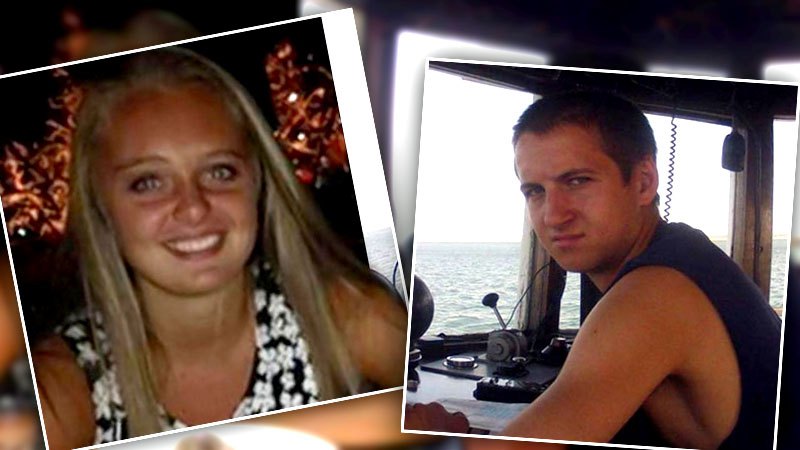Michelle Carter convicted of involuntary manslaughter for texts urging boyfriend to commit suicide
Michelle Carter, who peppered her boyfriend, Conard Roy III, with texts urging him to commit suicide, has been convicted of involuntary manslaughter in his death. (Facebook)
WASHINGTON – Michelle Carter, who as a Massachusetts teen sent a volley of texts urging her high school boyfriend to commit suicide, was found guilty Friday of involuntary manslaughter in his death.
Bristol County Juvenile Court Judge Lawrence Moniz found the texts sent by Carter, now 20, make her responsible for the death of her boyfriend, Conrad Roy III.
Moniz’s decision surprised some legal experts, who expected an acquittal, and drew criticism from free speech advocates, who said it violates the First Amendment’s guarantee of free speech.
Roy, 18, died of carbon monoxide poisoning on a July 2014 night in his pickup truck in a Kmart parking lot in Fairhaven, a waterside town about 55 miles south of Boston near the outer elbow of Cape Cod
As toxic fumes filled the cab of the pickup and Roy climbed out and texted to Carter that he was afraid, she urged him to “get back in” the pick-up.
Judge Moinz seized on those three words.
“This court finds that instructing Mr. Roy to ‘get back in’ the truck constitutes wanton and reckless conduct by Ms. Carter,” Moniz said during the proceeding, televised live across America and across the globe.
Under Massachusetts law, “reckless” or “wanton” conduct that poses a high risk of substantial harm constitutes involuntary manslaughter.
Cook, in those last moments of his life, somehow overcame the voices of longtime depression that told him to end it and made the decisive, life-saving move to fresh air in the parking lot on that summer’s night.
And all the while, Carter kept goading him to do what he had said so many times he would do.
“I thought you wanted to do this. The time is right and you’re ready, you just need to do it!” she texted.
In another text, Carter, then 17, told Roy: “You’re finally going to be happy in heaven. No more pain. It’s okay to be scared and it’s normal. I mean, you’re about to die.”
The judge looked at a Carter, who sobbed through most of the 15-minute hearing, and said: “She called no one, and finally she did not issue a simple additional instruction: ‘Get out of the truck.'”
Carter faces a sentence that could range from probation to 20 years in prison. Sentencing is scheduled for Aug. 3.
The verdict is unique in that it apparently marks the first establishing that a person’s words alone can mean criminal responsibility for someone’s suicide.
Moniz’s guilty verdict against Carter has already begun raising First Amendment questions about the government’s imprisoning people solely for words that lead to someone’s death.
“Ms. Carter has now been convicted of manslaughter, based on the prosecution’s theory that, as a 17-year-old girl, she literally killed Mr. Roy with her words,” ACLU Legal Director Matthew Segal said hours after the verdict.
“This conviction exceeds the limits of our criminal laws and violates free speech protections guaranteed by the Massachusetts and U.S. Constitutions.”
He called the death of Roy “a terrible tragedy” but added, that no law makes it a crime to encourage, or even persuade, someone to commit suicide.
“It is not a reason to stretch the boundaries of our criminal laws or abandon the protections of our Constitution,” Segal said.
Roy had a history of depression and suicide attempts, Carter’s defense lawyer, Joseph Cataldo, told the court.In his verdict, Moniz said he did not take into account Roy’s previous suicide attempts.
Carter was tried in juvenile court because she sent the texts as a 17-year-old.
This story is republished with permission from Talk Media News.

Gary Gately, a seasoned journalist, has won 15 national, regional and local awards for reporting and writing news, investigative, public service, feature, business and travel pieces. Gately’s work has been published by The New York Times, The Boston Globe, The Baltimore Sun (where he worked in reporting and editing jobs for 11 years), Baltimore Examiner, the Chicago Tribune, The Atlanta Journal-Constitution, The Guardian, The Washington Post, The Dallas Morning News, Business Week, Newsweek, Arrive Magazine, The Center for Public Integrity, CBSNews.com, CNBC.com, ABCNews.com, USAToday.com, HealthDay, The Crime Report, United Press International and numerous other newspapers, websites and magazines.
His coverage has received awards from the Associated Press, the Society of Professional Journalists, the Washington-Baltimore Newspaper Guild, the Maryland-Delaware-D.C. Press Association and the Society of American Travel Writers (first-place Lowell Thomas Award for best newspaper travel story/U.S.-Canada (immigrant New York).
Gately also has extensive experience editing for newspapers and websites, has taught college journalism courses in news writing, magazine writing and travel writing and is the author of Maryland: Anthem to Innovation, a book on the state’s history, industries and attractions.

